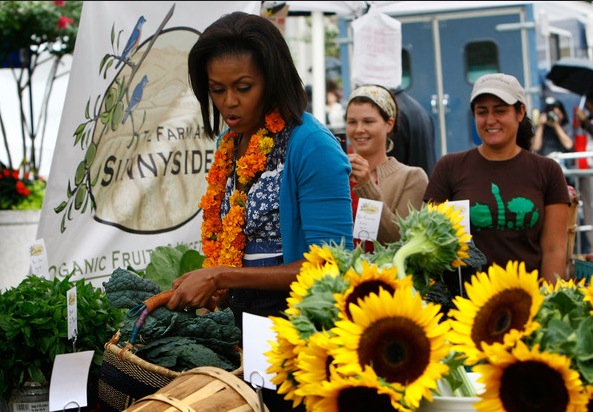Organic farming is often sold as more environmentally friendly, but a new study out of Oregon found that large-scale organic farms are more greenhouse-gas intensive per acre than conventional farms.
“My analysis finds that the rise of certified organic production in the United States is not correlated with declines in greenhouse gas emissions derived specifically from agricultural production, and on the contrary is associated positively overall agricultural greenhouse gas emissions,” writes doctoral student Julius McGee at the University of Oregon’s sociology department.
Organic farming has been around for decades, but in recent years it’s become a much bigger fad among environmental, animal rights and health activists who want to claim they’re being more eco-friendly and not putting any genetically modified crops into their bodies. The GMO debate aside, organic food isn’t as green as activists claim.
McGee examined state-level farming data for every state except Louisiana from 2000 to 2008 using a fixed-rate panel regression. What he found was that large-scale organic farming was more carbon intensive per acre than conventional farming.
“As a result I argue that the recent USDA certification of organic farming has generated a bifurcated organic market, where one form of organic farming works as a sustainable counterforce to conventional agriculture and the other works to increase the economic accessibility of organic farming through weakening practice standards most conducive to reducing agricultural greenhouse gas output,” McGee wrote in his abstract.
Past studies on the subject of organic farming’s carbon footprint are mixed. A study released last year by the Rondale Institute, which supports organic farming, argued that converting all the world’s cropland to “regenerative” organic farming would reduce carbon emissions 71 percent. Though there are problems with scaling up organic farming to meet the needs of billions of people.
“There’s nothing wrong in principal [with the organic production findings] but in general there are the practical aspects of this being scaled up,” Steve Savage, a Stanford-trained biologist, told The Wall Street Journal.
Savage has also pointed out that organic farming, while putting an emphasis on soil health, emits lots of methane during the composting process — a much more potent greenhouse gas than carbon dioxide.
McGee admitted that large-scale organic farming could reduce its carbon footprint, but that will take better technology and practices. Even then, McGee argues there needs to be a societal change in the way people look at food.
“We are not going to solve all these problems with technology,” McGee said in a statement. “The issue of agriculture and climate change doesn’t derive only from technology. Sure, that’s part of it, but a lot of the issue is the social context in which we relate to food… for both forms of agricultural production.”





4 comments
… [Trackback]
[…] Information to that Topic: thelibertarianrepublic.com/study-organic-farming-aint-so-green-after-all/ […]
… [Trackback]
[…] Info on that Topic: thelibertarianrepublic.com/study-organic-farming-aint-so-green-after-all/ […]
… [Trackback]
[…] Find More on that Topic: thelibertarianrepublic.com/study-organic-farming-aint-so-green-after-all/ […]
… [Trackback]
[…] Info on that Topic: thelibertarianrepublic.com/study-organic-farming-aint-so-green-after-all/ […]